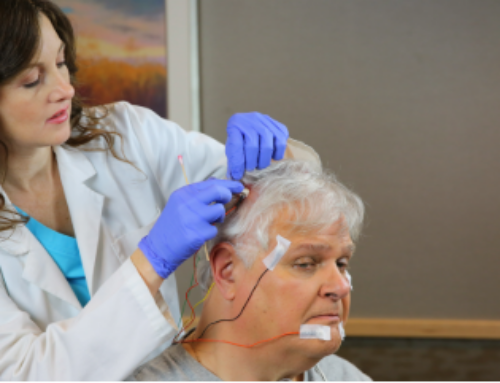For many people, caffeine offers a quick pick-me-up when fatigue sets in. Found in various forms like coffee, tea, sodas and energy drinks, caffeine’s stimulating effects are well-documented, providing a temporary boost to alertness and mental acuity. However, caffeine can cause side effects and have a disruptive effect on your sleep.
Caffeine, a natural substance derived from plants or produced synthetically, operates as a stimulant by blocking adenosine receptors in the brain, thereby diminishing feelings of sleepiness. It can help improve your concentration, alertness and energy. However, daily use of caffeine can make it less effective as a stimulant. Over time, the brain builds up a tolerance, necessitating higher doses for the same desired outcome. Consequently, habitual caffeine consumption can disrupt sleep patterns, even if consumed earlier in the day. This makes it challenging to get quality sleep.
Despite its widespread use, the caffeine content in products can vary significantly. It can be challenging to gauge consumption accurately. For instance, coffee generally contains more caffeine than tea, and different brands of the same product may have differing amounts. Caffeine and alcohol can be a dangerous and life-threatening combination. Additionally, avoid pure and highly concentrated caffeine. It is extremely potent and nearly impossible to measure accurately in the home, making the risk of an accidental, lethal overdose of caffeine powder high.
Beyond the immediate effects on alertness, excessive caffeine intake can lead to adverse reactions such as high blood pressure, heart palpitations, dehydration and dizziness. Also, withdrawal symptoms may occur when you stop taking caffeine after using it regularly for a long time. This includes headaches, depressed mood, drowsiness and irritability. For pregnant or nursing women, people with high blood pressure or those with heart conditions, careful monitoring and restriction of caffeine intake are advisable. Also, parents should limit the amount of caffeine children consume.
Interestingly, limited and properly timed caffeine intake may be useful in the management of specific circadian rhythm sleep-wake disorders. For example, caffeine can enhance alertness during the night shift for people with shift work disorder. Caffeine also may improve alertness and help reduce sleepiness in people who have jet lag. This improvement may occur following eastward travel across multiple time zones.
It’s important to strike a balance between reaping the benefits of caffeine and ensuring you get enough quality sleep. Aim for 7 or more hours of sleep nightly for adults, and 8 to 10 hours for teens, to optimize alertness and cognitive function. Maintaining a consistent sleep-wake schedule reinforces the body’s natural circadian rhythms, promoting deeper and more restorative sleep.
While caffeine can offer temporary relief from drowsiness, it’s not a substitute for sleep. Reserve its use for moments when an extra boost of alertness is genuinely needed and avoid consumption in the late afternoon or evening to prevent difficulty falling asleep.
If you’re experiencing ongoing sleep or alertness, talk to your doctor, who may refer you to an accredited sleep center for help.
Medical review by Dionne Morgan, MBBS, FCCP





